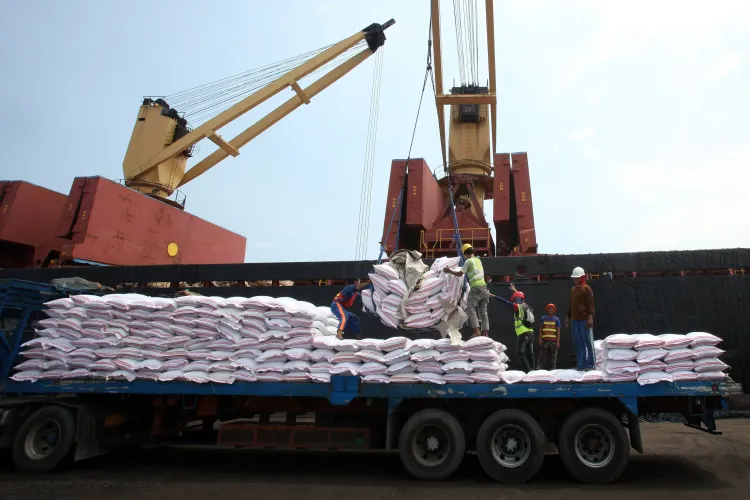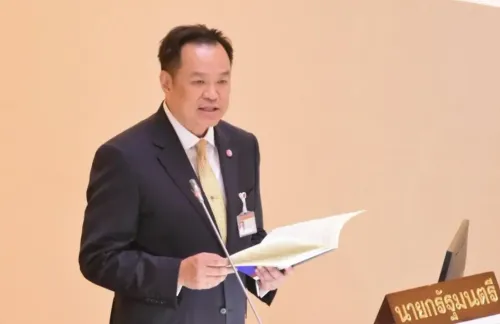Why Did the Philippines Extend the Rice Import Ban?

Synopsis
Key Takeaways
- Extension of the rice import ban for an additional 30 days.
- Supports Filipino farmers and stabilizes rice prices.
- Executive order to prevent local government units from buying imported rice.
- Possibility of future tariffs on imported rice.
- Government planning to procure more palay from local farmers.
Manila, Sep 29 (NationPress) The President of the Philippines, Ferdinand Romualdez Marcos, has mandated the continuation of the rice import prohibition, which spans from September 1 to November 2, for an additional 30 days. This action aims to bolster the livelihoods of Filipino farmers and stabilize rice prices within the local market, as stated by Philippine Agriculture Secretary Francisco Tiu Laurel on Monday.
According to Tiu Laurel, this decision was reached during a meeting with Marcos at the presidential palace last Friday, as reported by the Xinhua News Agency.
He remarked, "The rice import ban will be extended for a minimum of 30 days, or until the year's end, based on the prevailing conditions," he informed the press.
Furthermore, it was indicated that Marcos will issue an executive order that prohibits local government units and other governmental bodies from acquiring imported rice.
"There is a significant likelihood that tariffs will be reintroduced once the import ban concludes, and a floor price for palay will be established," he mentioned.
In the Philippine context, palay refers to unhusked or rough rice, the unprocessed state of rice before milling. It is the fundamental food crop in the country.
Tiu Laurel further noted that Marcos has "approved in principle" the issuance of an executive order for the emergency procurement of palay and the additional leasing of warehouses, enabling the government to acquire more palay from farmers.
Last week, the Department of Agriculture (DA) indicated that Marcos was taking steps to tighten the nation’s rice import regulations by prolonging the existing two-month import halt and increasing tariffs on foreign rice. Tiu Laurel mentioned that Marcos has directed the DA to prepare necessary orders to extend the import freeze.
"The length of the import freeze and the potential tax hikes on imported rice will be decided once we have more precise data regarding supply and prices of palay at the farm gate," Tiu Laurel stated after discussions with Marcos.
The import ban, which commenced on September 1, was originally enacted to assist farmers in recovering from declining palay prices caused by an influx of cheaper imported rice.









